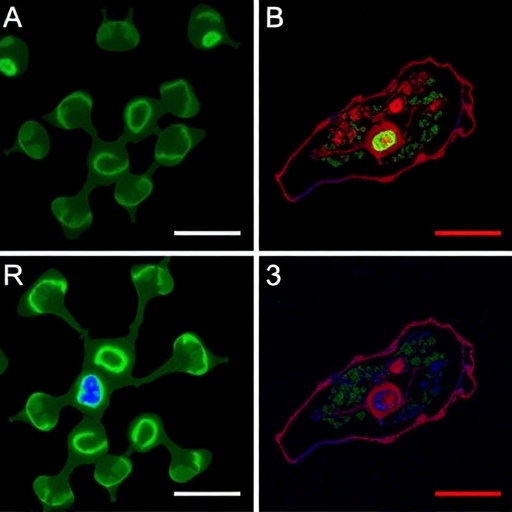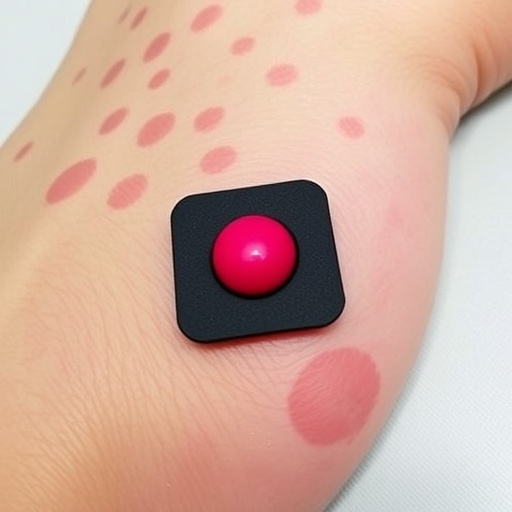In a new study, researchers developed a gene expression predictor that can indicate whether melanoma in a specific patient is likely to respond to treatment with immune checkpoint inhibitors, a novel type of immunotherapy. The predictor was developed by Noam Auslander, Ph.D., with other researchers in the Center for Cancer Research (CCR) at the National Cancer Institute (NCI), part of the National Institutes of Health, and colleagues at Harvard University, Cambridge, Mass.; the University of Pennsylvania, Philadelphia; and the University of Maryland, College Park. The study was published August 20, 2018 in Nature Medicine.
"There is a critical need to be able to predict how cancer patients will respond to this type of immunotherapy," said Eytan Ruppin, M.D., Ph.D., of NCI's newly established Cancer Data Science Laboratory, who led the study. "Being able to predict who is highly likely to respond and who isn't will enable us to more accurately and precisely guide patients' treatment."
Treatment with checkpoint inhibitors is effective for some patients with late-stage melanoma and certain other types of cancer. However, not all patients with melanoma respond to this treatment, and it can have considerable side effects. Being able to predict which patients are likely to respond and which are not would be a major clinical advance. But developing a predictor of response has been challenging, partly because of the limited number of patients who have received this relatively new form of treatment.
In this study, the investigators developed a predictor by first looking for clues in cases where the immune system appears to mount an unprompted, successful immune response to cancer, causing spontaneous tumor regression. They analyzed neuroblastoma, a type of cancer that frequently undergoes spontaneous regression in young children, and were able to define gene expression features that separated patients with non-regressing disease from those with regressing disease.
These features enabled the researchers to compute what they called an IMmuno-PREdictive Score (IMPRES) for each patient sample. The higher the IMPRES score for a sample, the more likely it was to undergo spontaneous regression. To see if IMPRES could be used to predict melanoma patients' responses to checkpoint inhibitors, the authors analyzed 297 samples from several studies. They found that the predictor could identify nearly all patients who responded to the inhibitors and more than half of those who did not, making it significantly superior to all other existing published predictors. Importantly, unlike other existing predictors, IMPRES was accurate across many different melanoma patient data sets.
"We now know that immunotherapy works, but we do not understand well why a particular therapy will work for some patients but not others," said Tom Misteli, Ph.D., director of CCR at NCI. "This study is a step forward in developing tools to address this challenge, which is of practical importance to patients."
Dr. Ruppin said that while the results obtained are encouraging, they will need to be carefully evaluated in additional patient datasets. The authors also wrote that further study of this kind of predictor is now warranted in other cancer types for which checkpoint inhibitors have been approved.
###
About the Center for Cancer Research (CCR): CCR comprises nearly 250 teams conducting basic, translational, and clinical research in the NCI intramural program–an environment supporting innovative science aimed at improving human health. CCR's clinical program is housed at the NIH Clinical Center–the world's largest hospital dedicated to clinical research. For more information about CCR and its programs, visit ccr.cancer.gov.
About the National Cancer Institute (NCI): NCI leads the National Cancer Program and NIH's efforts to dramatically reduce the prevalence of cancer and improve the lives of cancer patients and their families, through research into prevention and cancer biology, the development of new interventions, and the training and mentoring of new researchers. For more information about cancer, please visit the NCI website at cancer.gov or call NCI's Contact Center (formerly known as the Cancer Information Service) at 1-800-4-CANCER (1-800-422-6237).
About the National Institutes of Health (NIH): NIH, the nation's medical research agency, includes 27 Institutes and Centers and is a component of the U.S. Department of Health and Human Services. NIH is the primary federal agency conducting and supporting basic, clinical, and translational medical research, and is investigating the causes, treatments, and cures for both common and rare diseases. For more information about NIH and its programs, visit nih.gov.
Media Contact
NCI Press Officers
[email protected]
240-760-6600
http://www.cancer.gov
http://www.cancer.gov/news-events/press-releases/2018/melanoma-immunotherapy-predictor
Related Journal Article
http://dx.doi.org/10.1038/s41591-018-0157-9




